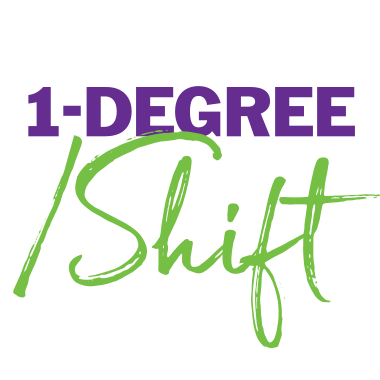Breaking down the misconceptions about self-care
Have you ever had a second thought about taking the afternoon off (after you have booked it off), or felt guilty for stepping away from your e-mails to take a quick walk? You are not alone.
Most of us are prone to feeling guilty taking time for ourselves. It seems that creating this “permission space” is at the heart of the mindset shift needed to prioritize well-being. Why is this particularly important NOW? Deloitte & Lifeworks recently partnered on a study about senior leaders. One of their sobering insights was this: Over 80% of senior leaders report a level of exhaustion typical of burnout risk. The same study showed that: Six in 10 (63%) don’t make time for their personal well-being, either consistently or at all. This sends a ripple effect into their organizations. If senior leaders are exhausted and not prioritizing well-being, then how can their teams feel comfortable doing that for themselves?
Over 80% of senior leaders report a level of exhaustion typical of burnout risk
When we don’t create space for well-being, there are typically two things at work here: one, we feel guilty because of our own personal experiences, narratives and lessons we were taught as young children like “work hard to play hard” or “to be successful you have to achieve things”. The “play” or rest needs to be “earned,” we are taught. And two, this then gets magnified on a cultural and societal level, so we end up creating work environments that reinforce those lessons we learned as children. Suddenly, we are trying to thrive in an environment that is unrealistically demanding and in a space that has no place for self-care. In this landscape, there is simply no time, no use and no purpose to spending time on ourselves. It’s so unproductive!
This is incredibly problematic because it demonizes well-being practices in all forms. When we ignore our well-being needs, we are doing more damage to ourselves than we realize. In fact, stress, if not managed well, can create disease and kill us. It is time to shift our ways of thinking about self-care and debunk myths we may have around it. Here are four myths perpetuating our well-being & mental health crisis.
Myth 1: Self-Care is Indulgent and Selfish
Self-care is often confused with indulgences – many of us define self-care as “anything that makes you feel good”. The trouble with this definition is that it is too broad and can easily include unhealthy indulgences that aren’t really self-care (e.g. over-drinking, eating too much fast food, spending too much money on online shopping).
Truth: Self-care is a Necessity
It is your physical, mental, emotional and spiritual well-being. Sure, self-care can look like a spa day or a weekend getaway – but it can also look like taking 10 minutes for a quick meditation, brushing your teeth every night, drinking enough water throughout the day or connecting with people & things you’re grateful for. We need to take care of ourselves to take care of others. It allows us to give more of our energy to those around us – and that’s not selfish at all.
Myth 2: Self-Care Is Unproductive
We all want to be high-performing individuals – both in our personal and professional lives. The problem is that many of us don’t recognize the vital importance of recharging our energy levels. We can’t pour from an empty cup. And unfortunately, many of our cups are near empty these days. In order to give our best, we have to be at our best, and to be at our best, we have to make sure we are incorporating rest and self-care into our daily lives.
Truth: Energy is Fundamental to Productivity
As Jim Loehr & Tony Schwartz say in The Power of Full Engagement, “Energy, not time, is the fundamental currency of high performance.” The key to high performance is energy management. When we take the time for self-care and re-energizing ourselves, we are able to: stay focused for longer, keep calm under pressure and be present in everything that you do. Managing our energy & prioritizing well-being enables us to show up fully for our peers, our loved ones and ourselves.
Myth 3: Self-Care is Earned
We’ve all been there: we work all year and when we finally take some time off, we say to ourselves “I’ve worked hard, I deserve to take time for myself & enjoy my vacation”. Why do we think making the time to take care of ourselves is dependent on how hard we work? It may have to do with how we view success. We all want success but we’ve created a limiting definition that keeps us forever chasing it. Many of us define being successful as achieving some desired vision, plan or goal. This makes success dependent on external factors which we have little to no control over. When we complete a task on our to-do list, we only feel successful until the next task appears. It’s the reason we feel guilty for taking a half-day at work, or even taking a quick walk around the block as an energizer. Attaching success to outcomes ignores the crucial importance of well-being, and we get trapped in feeling like we haven’t ‘earned’ self-care.
Truth: Self-Care is Self-Love
Our idea of self-worth is closely connected to our definition of success. If we define success as achievement, our idea of self-worth will likely also revolve around outcomes only. Let’s shift how we define success – let’s soften the focus on the outputs and tune into the inputs. Success becomes something that we have power and control over, and it’s defined by our own personal development (i.e. your behaviour, how you treat yourself and others). In this definition of success, self-care is fundamental. We cast away the guilt we feel about taking care of ourselves because self-care becomes a focal point. Self-care reinforces the truth that we are worthy of and deserve unconditional love – you shouldn’t feel you need to earn your own love.
Myth 4: Self-Care is Expensive
We sometimes think of self-care as an expensive treat – like going to a fancy restaurant, or splurging on a holiday. We end up being trapped in the idea that you need to spend money on practicing self-care.
Truth: Self-Care is Free
We don’t need to spend a dime on self-care if we don’t want to. Some of the best self-care costs nothing except our time and energy. There are so many ways that we can practice self-care for free at home and at work. The ROI and impact from these practices is priceless.
Here are some self-care practices we can start, re-start or dial up right now:
1. Set boundaries at work: This is likely very difficult for many of us working from home especially. Although this may be challenging, setting boundaries around our workday is a crucial step in protecting and honouring your personal life.
2. Take walk breaks: Getting our bodies moving, and our minds off work help us come back more focused and more creative.
3. Stay hydrated: This is an underrated practice – Since over 60% of our body is water (our brain is 73% water!), dehydration can affect our ability to focus and how energized we feel. Keep a bottle at your desk and top it up throughout the day.
4. Make a list of what you’re grateful for DAILY: Turning our attention to what we are grateful for grounds us spiritually and forces us to slow down and appreciate that which we have in our lives.
Which of these myths and practices resonate most with you?
We hope that you create more “permission space” to shift and prioritize well-being. When we can shift our mindsets around well-being and self-care, we are declaring more love for ourselves and for our world. In being more intentional to fuel our energy levels, we are allowing ourselves to serve, help, care at our best. Giving to ourselves allows us to be more energized, productive and more giving to others.
Let’s connect! Book a discovery call here.
1-DEGREE/Shift


